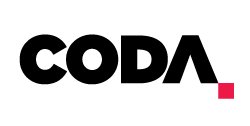
Time |
…Dying
What if we spoke about dying with the openness and curiosity of children? How can we unlearn our social discomfort on tackling the one thing that will inevitably happen to every person? This panel will meander through humour, kindness, benefits and burdens, all in the name of helping healthcare have a good public-facing chat about death.
Liz Crowe
Liz Crowe has two and a half decades of expertise in grief, crisis, end of life care, bereavement work and staff wellbeing in pediatric critical care environments. Liz currently works at a tertiary adult hospital providing consultation, coaching, counselling and education for staff wellbeing. She is in the absolute final stages of completing her PhD examining risk and protective factors for staff wellbeing in critical care. Liz is a published academic involved in multiple research projects nationally and internationally focussing on the wellbeing of staff and the impact of COVID on clinicians. Liz is a passionate and humorous educator who regularly speaks internationally. Liz is the successful author of ‘The Little Book of Loss and Grief You Can Read While You Cry’. She is a proud member of the St Emlyn’s education team and an active member of #FOAMed, and can be found on Twitter @LizCrowe2.
@LizCrowe2Jenny Holman
Jenny Holman has worked as a Clinical Nurse Consultant / Organ Donor Coordinator at Royal North Shore, Sydney Australia since 2009. Her background includes decades in neuro ICU and palliative care. She is passionate about good end of life care and communication, bereavement, self-care in the workplace, and is a SMACC addict. Jenny particularly enjoys caring for patients and their families from diverse cultures as they navigate the difficult journey of end of life care.
In her other life she is an avid swimmer, reader, mother of 3 young adult children, has ahusband of 30 years, is an appalling cook and lover of anything sweet.
Rachel Callander
Rachel is a TEDx presenter, speaker, trainer, award winning artist and author of two books- Super Power Baby Project and Super Power Kids. These books celebrate the lives and abilities of children with a range of disabilities and have been inspired by Rachel’s late daughter Evie, who was born with a very rare chromosomal condition. In the two and a half years of Evie’s life, Rachel learnt a lot about the use of language in the health system, and has spent a decade exploring the impact and implications of how it is used by health professionals – with positive and negative effects.
She teaches how the first words used at diagnosis critically shape how a parent perceives their future: The words can allow the parent/patient to be their best, and find meaning even in pain; or they can create anger, mistrust, frustration, and can break down the crucial relationship between the parent and the health professional.
Greg Kelly
Greg lives and works on beautiful Darug country in Sydney, Australia. He is a pediatric intensivist and co-lead of the cardiac ICU at Westmead Children’s Hospital as well as running the Pediatrica Intensiva podcast. He trained in pediatrics and ICU at the Royal Children’s Hospital Melbourne, pediatric palliative care at Westmead Children’s Hospital and pediatric cardiac ICU at SickKids, Toronto. He has previously been the medical lead for Bear Cottage Children’s Hospice and spent several years working in both the Northern Territory and at Queensland Children’s Hospital. He has become increasingly interested in how things work, how they fail, and how we can make them better. In 2019 he completed an MBA at Melbourne Business School. During in the COVID crisis he, along with several other frontline healthcare workers, organised a series of campaigns to prompt governments to take the threat seriously and to protect healthcare workers and served on a key COVID strategic advisory body. He sees the key challenges of the health system as better reflecting and serving the community, enhancing survivorship and dealing with the immense challenges that the climate crisis requires.
@drgregkelly